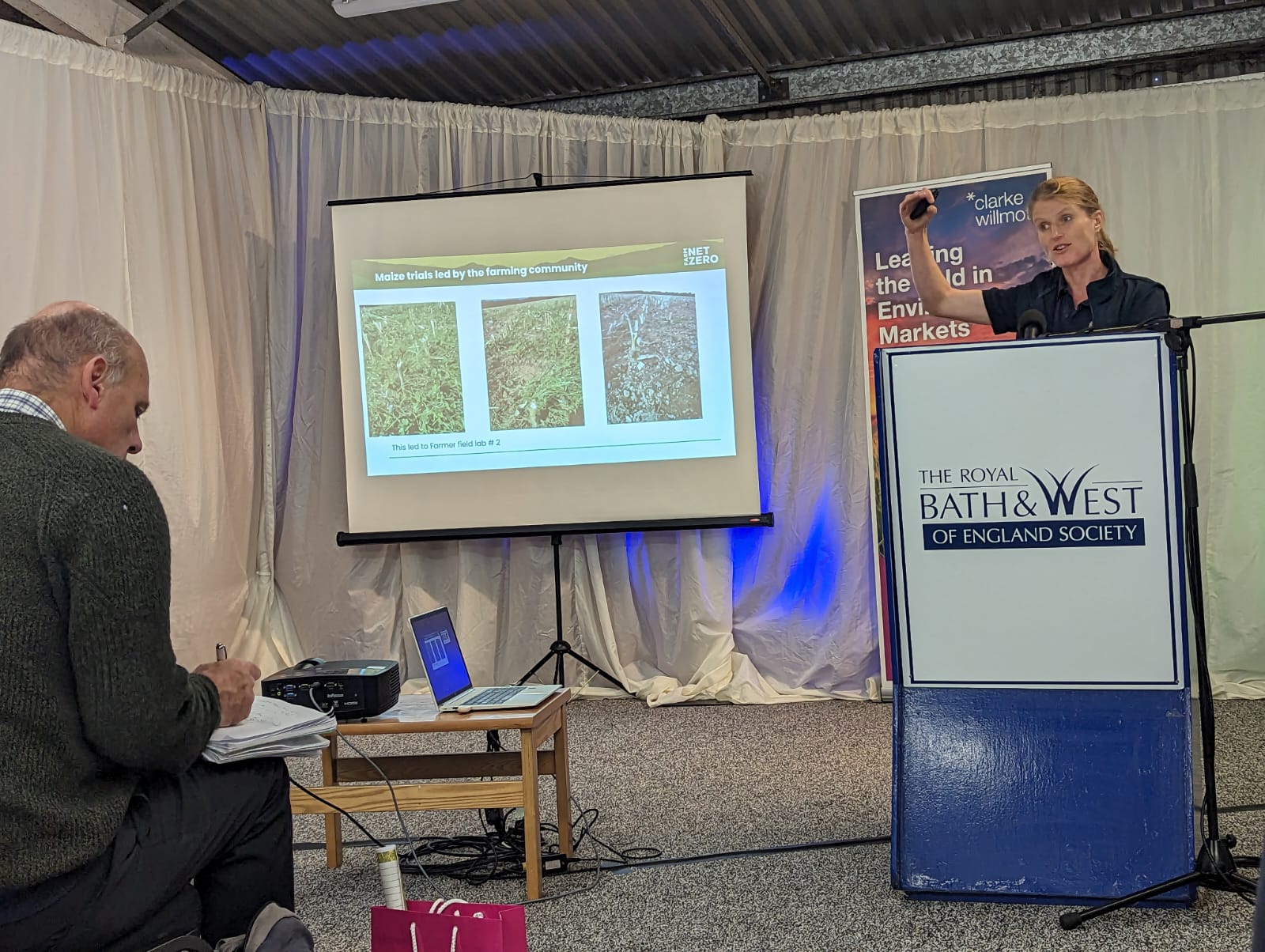
No day at work is remotely similar, every field is different, and each farm is unique. However, there are common questions that are raised during a carbon audit, farm event or trial set-up. It is these questions which motivate me to find how we can support farmers’ to build the resilience of their businesses and in so doing reduce their carbon footprint.
Years ago, I worked with one of the UK’s leading agro-ecologist, Professor Martin Wolfe who greatly inspired me. Central to Martin’s teachings was the need to understand the effect of environment on the expression of the genetics of an organism. In the context of the farm, it is the effect of that individual farm environment and the management which alters crop or animal performance. These on-farm trials can have quite different outcomes from average values from national data sets.
In this context, it is the trials on-farm which provide the information for individual farmers or the associated farmer clusters. These trials, which might be just a single pass of a different seed mix or replicated trials over multiple farms, that provide the information to change a farming practice. In addition, and most importantly, these small trials and discussion groups reduce the risk associated with a change in practice and allows collaboration in terms of machinery or technological know-how.
The Farm Net Zero project , funded by the National Lottery, is focused on working with a farm community in Cornwall. It is this funding that has allowed me, as part of a wider consortium, to work with groups of farmers to address common areas of interest. The project is in its third year, and the work continually inspires me because of the evolving dialogue, increases in soil health, reducing emissions and a community network that gains increasing strength.
It is hard for anyone to make a change, but it is particularly challenging for complex businesses that are vulnerable to variability in climate, biological risks from pests and diseases, as well as changing market and policy forces. As part of a community, my favourite working days are those spent with groups of like-minded farmers focused on addressing a common challenge and reducing risks associated with changing to a more sustainable practice. I imagine Martin would approve.


Recent Comments